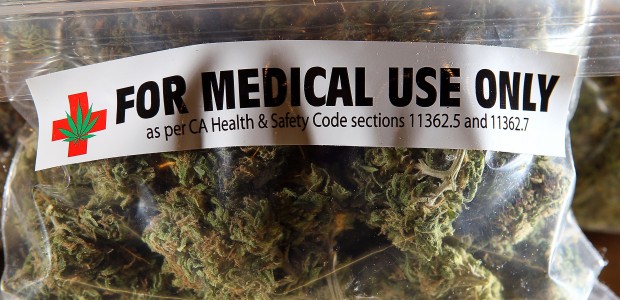In 1996, the voters of California passed Proposition 215, which declared the medical use of marijuana legal in the state. Proposition 215 came into conflict, however, with Federal Law, which prohibits the use of medical marijuana, even for medicinal purposes. After Proposition 215 passed, Angel Raich used homegrown marijuana (cannabis); an act which was now legal under California law, but illegal under the Federal Controlled Substances Act.
Ms. Raich, who suffers from Radiation Necrosis, an inoperable brain tumor, sued the Federal Government. In addition to claiming that marijuana was the only way to ease her pain from the cancer, Ms. Raich’s legal team claimed that the Federal Law went beyond the powers granted to Congress in the Commerce Clause of the U.S. Constitution; a clause which gives Congress the power to regulate interstate commerce.
In the 2005 case of Gonzales v. Raich (Gonzales was the U.S. Attorney General) the U.S. Supreme Court held that Congress may ban the use of marijuana even where states approve its use for medicinal purposes. The reason that the court gave was that growing marijuana, even at home, taken cumulatively, has an effect on Interstate Commerce.
As the court explained: “the regulation is squarely within Congress’ commerce power because production of the commodity meant for home consumption, be it wheat or marijuana, has a substantial effect on supply and demand in the national market for that commodity.”
Justice Sandra Day O’Connor, who was appointed by President Ronald Regan, dissented, claiming that states have the right experiment with these types of laws and serve as a “laboratory” for the rest of the nation, “and try novel social and economic experiments without risk to the rest of the country.” Justice Thomas, nominated to the Supreme Court by President George H.W. Bush, also dissented, explaining that: “If the majority is to be taken seriously, the Federal Government may now regulate quilting bees, clothes drives, and potluck suppers throughout the 50 States.
This makes a mockery of Madison’s assurance to the people of New York that the “powers delegated” to the Federal Government are “few and defined”, while those of the States are “numerous and indefinite.” At the present time, there is a split between the Federal government and many state governments regarding the legality of marijuana. The most important point to remember is this: one who uses marijuana, even for medicinal purposes and even in states where it is legal, may be penalized by the federal government as it is still illegal under U.S. law.
One very frequent issue is an air traveler who attempts to fly medical marijuana into a state where medical marijuana is legal; baggage screeners work for the federal Transportation Security Administration, and thus regard marijuana as illegal. It is true that the Federal Government probably has bigger fish to fry than medical marijuana users, but one should be aware that officially the practice is illegal under Federal law.
The following are sixteen states where medical marijuana is legal under state law: Alaska, Arizona, California, Colorado, Delaware, Hawaii, Maine, Michigan, Montana, Nevada, New Jersey, New Mexico, Oregon, Rhode Island, Vermont and Washington. All of these states place severe restrictions on medical marijuana, and none of them are exempt from federal law.
This article is for informational purposes only and not to be regarded as legal advice.
